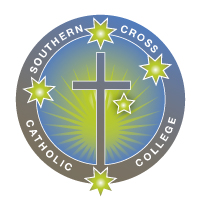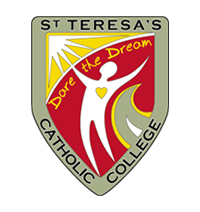
Year: 2024
Teacher: Mr Peter Tsambalis
School: Southern Cross Catholic College, Burwood NSW
Southern Cross Catholic School in Burwood, NSW, a vocational college, introduced a ‘financial wellbeing’ program for year 10 students in 2023, with the aim of closing the gap in their understanding of personal finance. The lessons were initiated by Peter Tsambalas, the entrepreneurship and enterprise coordinator at the school.
Peter says he believes it is crucial for young people to develop the life skills to be financially savvy.
“As a vocational college, we don’t teach subjects such as commerce or business, which means there is no opportunity for students to learn about important financial matters except through the maths curriculum,” Peter says.
“At the time, I had recently met some past students who had left school five years ago and who were struggling – they had university debt, they didn’t know how to budget and save, and they didn’t know how to get help to manage their finances.
“It really brought home to me how important it is for our students to learn these skills, in a way that they can relate to and engage with.”
Peter introduced financial literacy lessons, called My Money, My Future, which was met with an immediate positive response.
The lessons covered:
• careful budgeting,
• prudent debt management,
• saving and investing for the future, and
• ongoing financial education.
Peter used visually engaging presentation slides to showcase key concepts and information including images, graphs, and simple diagrams to enhance understanding. Students were given on a financial goals worksheet to guide them in setting SMART financial goals and developing action plans to achieve them.
The lessons also included interactive activities where students allocate hypothetical income towards various expenses to understand budgeting principles. Games and simulations helped students learn about basic investment concepts such as compound interest, interest bearing bank accounts, superannuation, and the sharemarket.
“The students were very engaged and they told me that they all went away with something useful. The teachers also said they wished they had been taught these lessons in school!
“I think the secret to success is to put it in terms that young people can relate to,” he says.
“To start with, we call it financial wellbeing, not literacy. In addition, I don’t talk about saving – that’s boring and you can see their eyes glaze over. Instead, I talk about spending, and the 80/20 rule. This gives students a basic framework where they spend 80 per cent of what they earn, and save 20 per cent. By switching things around – giving them permission to spend rather than saying they need to stop spending and save – the conversation is much easier and they are much more likely to understand how to put some money aside when they receive their pay check.”
He says there is no doubt in his mind that these kinds of lessons should be a standard part of the school curriculum in Australia.
“We are sending our children out into a complex world of taxation, superannuation, scams and debt, without equipping them with the skills to manage. We are creating pathways to university but not life skills.
“By prioritising financial well-being and taking proactive steps to improve financial health, students learn how they can improve their overall quality of life and achieve greater financial security and stability.
“This is particularly important at a time when many families are facing cost of living pressures. Unfortunately, many of the parents don’t have the financial knowledge they need so students aren’t learning good money practices at home.”
Peter says he found the Ecstra resources very useful, and has also used the MoneySmart website and other government material.
“I would love to see more schools introduce financial literacy lessons, so that we can start to foster a generation of Australians who are in control of their financial future,” he says.

Entrepreneur Classroom Project
Year: 2024
Teacher: Mr Daniel Nevan
School: St Teresa’s Catholic College, Noosaville, QLD
St Teresa’s Catholic College in Noosaville on the Sunshine Coast introduced a classroom initiative five years ago to equip students with essential financial skills like saving money better, budgeting, debt management, superannuation and taxes.
Business and humanities teacher Daniel Neven recognised a gap in the education system and decided to provide hands-on business experience by introducing a new course, “Entrepreneur Classroom Project,” to enhance students’ understanding of financial concepts.
Dan says he had been struck by students’ need for financial education.
“I was placed to teach business to Year 9 back in 2019, and it was painfully evident that the education system was not meeting the needs of the students. Therefore, I decided the best course of action was to get hands on with business, and help the students create their first business to better introduce business concepts in an engaging way,” he says.
“The initial response was huge, and quickly went from one class a year to four. We now have 60 students participating across two classes, with classes held each semester.”
Financial planning and budgeting have been major components of the program. Students have learned to launch businesses, make sales, generate profits and implement budgeting measures. The program has emphasised important entrepreneurial financial concepts including:
• Bootstrapping: Starting and growing a business with minimal external resources, relying primarily on personal finances or operating revenue. It emphasises self-funding, frugality, and creative problem-solving.
• Cost to produce: Understanding the total cost incurred to manufacture a product or provide a service.
• Recommended retail price: Identifying the suggested selling price for a product to consumers.
• Shipping: Learning the process and costs associated with transporting goods.
Dan says students engaged with all aspects of the program.
“The ownership, creativity and freedom have meant we’ve seen students succeed where they traditionally may not have been enjoying success in other parts of their schooling.”
Dan has been surprised by students’ knowledge and understanding of finances. “After being a bit dismayed at their initial financial skills, I’m now continually surprised at the amazing ideas for businesses students produce and put into action,” he says.
Dan has adapted his course over time to suit the needs of students. “Continual feedback from each group going through the course means there has been revisions along the way to reach its current iteration,” he says.
As a testament to its success, students of the program have won Queensland’s Generation Innovation competition two years in a row in 2022 and 2023. The GI Challenge is an independently run entrepreneurship program for 15–21-year-olds from the Sunshine Coast and Noosa regions and it empowers young entrepreneurs to translate an idea into a viable business through mentoring, skills development and business connections in a collaborative environment.
St Teresa’s success highlights the importance of incorporating financial literacy into the education system. By teaching students key entrepreneurial skills and financial concepts, educators like Dan are empowering students to make informed decisions about their finances and future careers.

